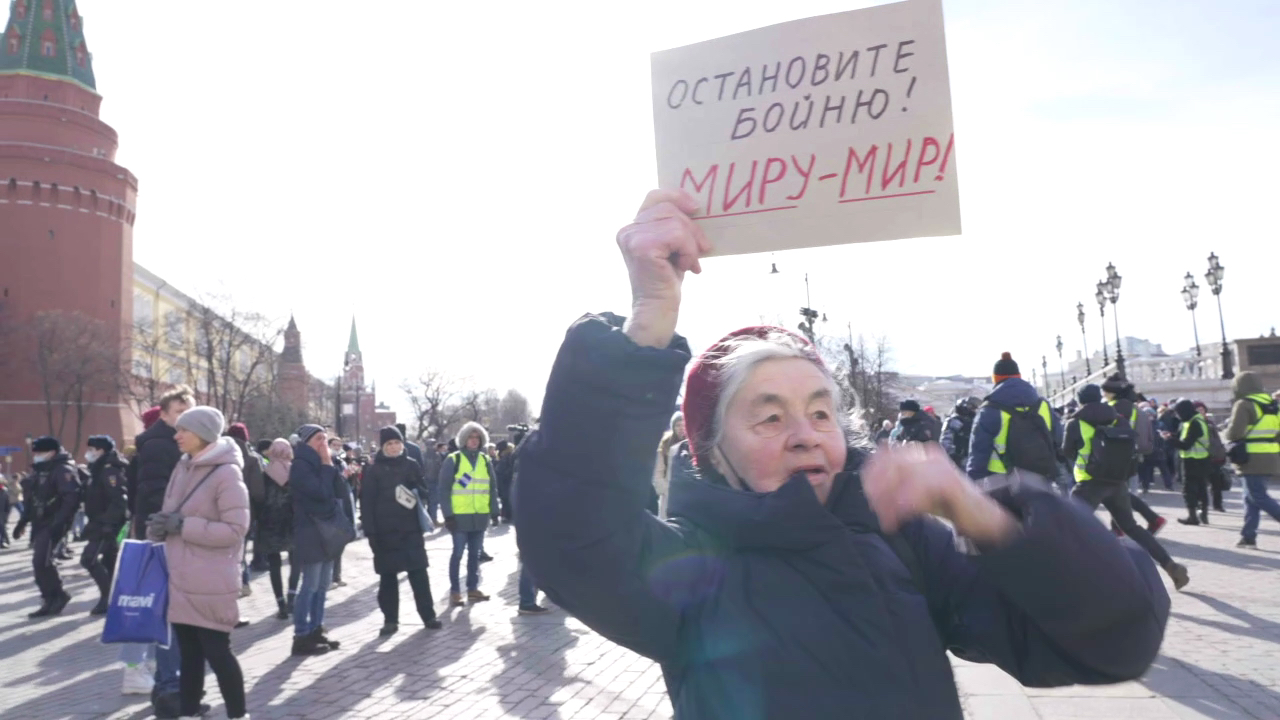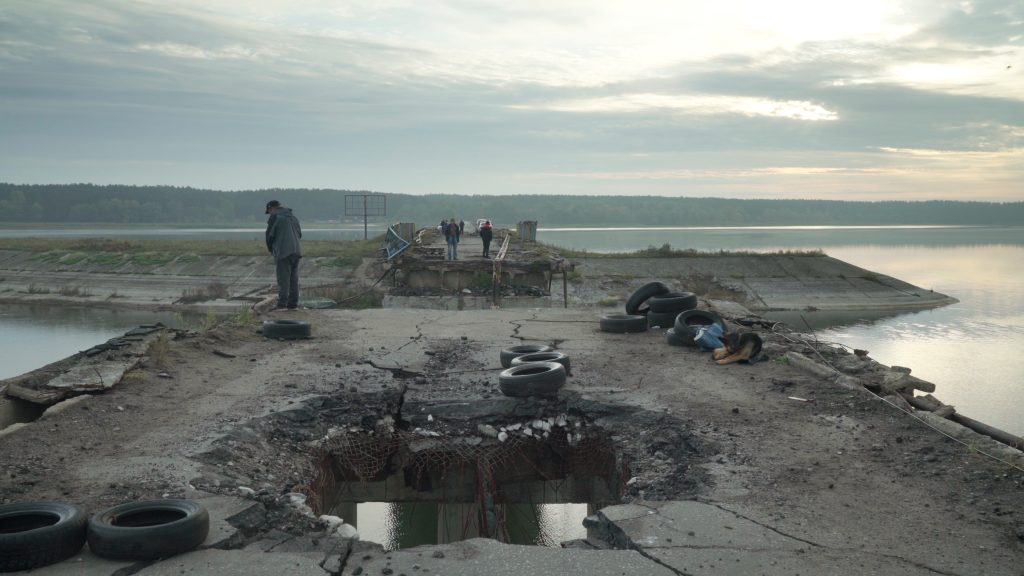It has been two years since Russian troops began their invasion of Ukraine. Events from beyond our eastern border are well-documented; thanks to social media, we are informed in real-time of the horrifying crimes committed by the aggressor. The films invited to the International Documentary Competition: Of Caravan and the Dogs by Askold Kurov and various anonymous creators as well as Intercepted by Oksana Karpovych – honoured with a Special Mention at the Berlinale – focus on the other side of the conflict, the Russians, in a manner that’s not immediately apparent.
Since the beginning of this war, we have consistently boycotted films produced by Russia. We only allow titles filmed outside the system, downright defiant in their narrative, exposing the moral misery of Putin’s politics – comments Anita Piotrowska, film critic and curator of Krakow Film Festival’s documentary section.
In the German production Of Caravan and the Dogs, Askold Kurov together with a group of anonymous creators depicts the authoritarian superpower just before the war and a few days after the assault from the perspective of the persecuted Russian opposition. Meanwhile, in the documentary Intercepted, honoured by the Ecumenical Jury and directed by Oksana Karpovych, we see the devastated Ukraine but hear authentic conversations between Russian soldiers and their loved ones.


Fighting for democracy
In 2012 Russia introduced a law on foreign agents. Those who disagreed with the Kremlin’s policies had to face repression, and even expulsion from the country. Nevertheless, a group of oppositionists kept fighting for truth and freedom of speech in an attempt to reach the entire nation with their message. The anonymous creators of the documentary Of Caravan and the Dogs were among them.
Just two months before Russia’s full-scale attack on Ukraine, Dmitry Muratov – journalist and editor-in-chief of the pro-democratic Novaya Gazeta – delivered his Nobel Prize speech. In it, the oppositionist recalled the fundamental duties of activists and campaigners, paraphrasing the famous proverb “The dogs bark, but the caravan moves on”. He also warned against the war, which, due to the ongoing pandemic at the time, seemed like a distant topic.
The documentary film by Askold Kurov and anonymous creators serves as a form of diary of Russian oppositionists’ unrest. Each subsequent action of the authorities is leading to what happened on the 24th of February 2022, and they are finding their hands increasingly tied. Institutions are being closed every other day, peaceful demonstrators are being assaulted, and independent online media bid farewell to their viewers. Looking into the eyes of the Nobel laureate, Vladimir Putin was planning for war.
Fighting against democracy
- Mom, I’m killing people here.
- Are you sure they’re human? These aren’t people.
- But I was a good man.
In Oksana Karpovych’s documentary, there are no close-ups of people. Instead of faces, the camera delves into desolate apartment buildings, schools, and football fields. It’s a world after disaster has struck, with bullet holes, crumbling plaster, shattered windows, and scorch marks on the walls. Everyday life in Ukraine.
This is the hell wrought by those we hear. Ukrainian intelligence services intercepted thousands of phone conversations of Russian soldiers. Men calling their mothers, wives, and children from the battlefield. They have a vast spectrum of emotions and experiences to share with them. Some are bitter, angry at the authorities (Do you think people are important to Putin? It’s land he cares about most. And power.), others believe in the purpose of their mission (We didn’t come here by our own admission, but for your safety.), but some discover predators within themselves, ones relishing in cruelty (I have no more mercy in me.). Their loved ones try to support them, but also spur them to fight by dehumanizing Ukrainians.
The strength of Intercepted lies in how intimate it is. The director doesn’t flaunt cruelty, nor does she attempt to shock. Instead of presenting violence, she shows attempts to adapt to a new life. Ukrainians go grocery shopping, stand in queues for water, pick fruit from trees. They only need to watch out for those who fight against them, losing themselves in the process.
Passes for the 64th Krakow Film Festival are on sale now!
The Krakow Film Festival is on the exclusive list of qualifying events for the Oscars® in the categories of short film (live action, animated, documentary) and documentary feature, as well as a recommending event for the European Film Awards in the same categories.
The 64th Krakow Film Festival will be held in cinemas from 26 May to 2 June and online across Poland on the KFF VOD platform from 31 May to 16 June 2024.